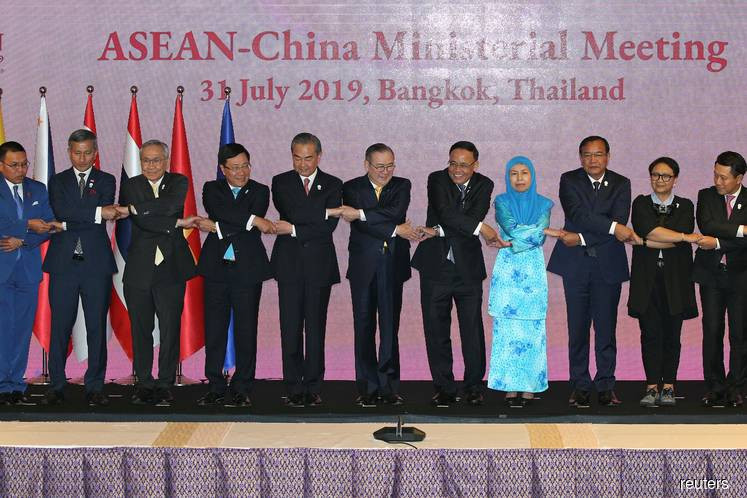The Association of Southeast Asian Nations (ASEAN) Summit in Bangkok, Thailand, was graced by leaders from countries involved in the Regional Comprehensive Economic Partnership (RCEP) deal but U.S. President Donald Trump was absent.
Analysts said his no-show streak would further strengthen China's stance as well as the region's rising power.
According to CNBC, Trump sent his national security adviser, Robert O'Brien, to this year's summit, while last year, he sent Vice President Mike Pence. Some analysts noted that the American leader's absence will only solidify China as a leading power in the region and will further unite the nations that are aiming to seal the world's most expansive trade deal.
ASEAN leaders, along with Chinese Premier Li Keqiang, pledged to further improve bilateral ties, resolve territorial conflicts, and revamp trade policies for the development of all countries involved.
The highlight of this year's summit was discussions regarding how to move forward with the RCEP deal. The trade agreement involves all ASEAN members as well as South Korea, Australia, Japan, New Zealand, India, and China.
In the draft statement created by the leaders present in the conference, it was stated that all of them were "committed to signing the RCEP agreement in Vietnam in 2020." Furthermore, the draft statement noted that the deal should be signed by February.
Deutsche Welle reported that India has been hesitant on signing the deal with the ASEAN countries. However, some member nations have reportedly suggested moving forward with the trade agreement's signing with or without India.
Aside from the long-overdue RCEP deal, the ASEAN leaders talked about how each country will further commit to contributions in battling climate change. U.N. Secretary-General Antonio Guterres said each nation should transition away from coal-fired power factories in this regard.
As for tensions regarding the South China Sea, China's Li noted that the Chinese government was prepared to discuss with respective nations in the ASEAN regarding the resolution of the issues and the promotion of peace in the region.
Li further revealed that a code of conduct regarding the disputed South China Sea will be completed by 2021 and should help resolve territorial disputes in the region.
Meanwhile, China and Thailand recently reaffirmed their desire to continue improving bilateral relations. The two countries already have a stable exchange of goods and business deals.
The China-ASEAN Free Trade Agreement (CAFTA) helped improve trade between the two sides, promoting exports and imports, as well as lifting in tariffs that helped agricultural segments move towards development.
As of August, bilateral investments between China and the ASEAN reached $230 billion, making the world's second-largest economy the region's largest trading partner for the past decade.





